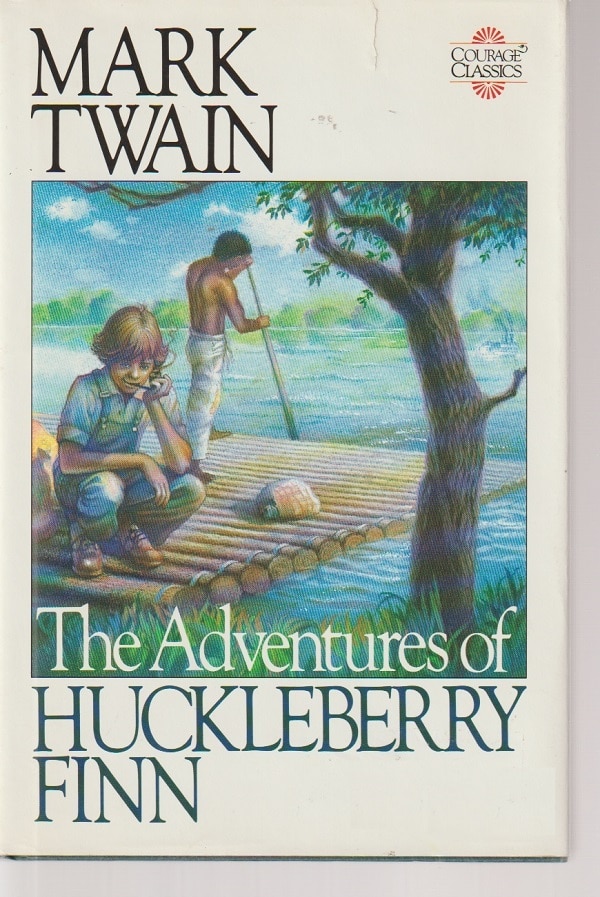Mark Twain’s “The Adventures of Huckleberry Finn” remains a cornerstone of American literature, sparking debate and captivating readers for over a century. More than just a boy’s own adventure story, this novel delves into complex themes of freedom, morality, and societal hypocrisy against the vibrant backdrop of the Mississippi River. In this comprehensive review The Adventures of Huckleberry Finn, we’ll explore the enduring appeal of “Huckleberry Finn,” its literary significance, and why it continues to resonate with readers today.
A Classic Tale of Escape and Self-Discovery
At its heart, “The Adventures of Huckleberry Finn” chronicles the journey of young Huck, a resourceful and independent boy who flees his abusive father and the constraints of “civilized” society. He embarks on a raft trip down the Mississippi River with Jim, an enslaved man seeking freedom. This shared journey becomes the crucible for their evolving relationship and Huck’s moral awakening.

Key Themes Explored in “The Adventures of Huckleberry Finn”
- Freedom and Slavery: The novel powerfully portrays the brutal realities of slavery and the yearning for liberation. Jim’s desire for freedom and his deep humanity challenge the prevailing societal norms and expose the inherent injustice of the institution. Huck’s internal conflict as he grapples with societal expectations and his growing affection for Jim forms a central moral axis of the story.
- Morality and Conscience: Huck’s journey is one of moral development. He constantly confronts the conflict between what society dictates as right and what his own conscience tells him. His decision to defy societal norms and help Jim escape highlights the power of individual morality over ingrained prejudice.
- Hypocrisy of “Civilization”: Twain satirizes the hypocrisy and superficiality of the “civilized” world. Through encounters with various characters and communities along the river, he exposes the flaws and contradictions within established social structures, religion, and even well-intentioned but misguided individuals.
- The Power of Nature and the River: The Mississippi River serves as more than just a setting; it’s a symbol of freedom, escape, and the natural world. The untamed beauty of the river contrasts sharply with the restrictive nature of human society, offering a space for genuine connection and self-discovery.
Literary Significance and Enduring Appeal
“The Adventures of Huckleberry Finn” is lauded for its innovative use of vernacular language, capturing the authentic voices and dialects of the characters and the region. Twain’s masterful storytelling blends adventure, humor, and poignant social commentary, making the novel both engaging and thought-provoking.
The novel’s enduring appeal lies in its exploration of timeless themes that continue to be relevant today. The struggle for individual freedom, the challenge of confronting prejudice, and the search for one’s own moral compass are universal experiences that resonate across generations.
Why You Should Read (or Re-Read) “The Adventures of Huckleberry Finn”
- A Cornerstone of American Literature: Understanding this novel provides crucial insight into American history, culture, and literary tradition.
- Thought-Provoking Themes: The book encourages critical thinking about complex social and ethical issues.
- Compelling Characters: Huck and Jim are unforgettable characters whose journey will stay with you long after you finish the book.
- Masterful Storytelling: Twain’s engaging narrative and vivid descriptions bring the Mississippi River and its inhabitants to life.
- Historical Context: The novel offers a powerful glimpse into the realities of the antebellum South.
Addressing Controversies
It’s important to acknowledge the historical context of “The Adventures of Huckleberry Finn” and the controversies surrounding its use of racial slurs and its portrayal of race. While these aspects can be challenging and uncomfortable, they are also crucial for understanding the historical realities of the time period. Many educators and scholars argue that confronting these difficult aspects within the novel can be a valuable opportunity for critical discussion about racism, prejudice, and the evolution of societal attitudes.
Conclusion: Review The Adventures of Huckleberry Finn
“The Adventures of Huckleberry Finn” remains a powerful and essential work of American literature. Its compelling narrative, unforgettable characters, and exploration of profound themes continue to captivate and challenge readers. While acknowledging its historical context and the sensitivities surrounding its language, the novel offers invaluable insights into the complexities of freedom, morality, and the enduring struggle for a more just society. Whether you’re a seasoned reader or discovering it for the first time, “Huckleberry Finn” is a journey down the Mississippi River you won’t soon forget.